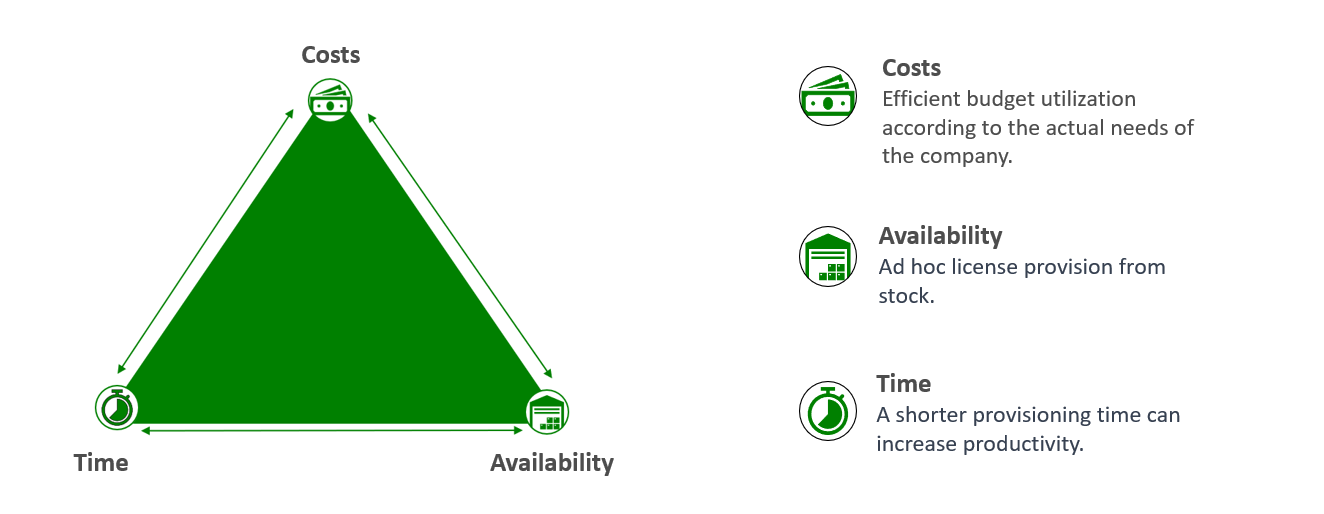
The magic triangle of license pooling
Cost, time or availability – what is particularly important to you?
Efficient resource utilization and cost management are crucial to a company's success. Software pooling in conjunction with central license management can represent an increasingly important tool for the IT department. This article applies the magic triangle to the context of software pooling in license management, focusing on the aspects of cost, availability and time.
Software pooling, as an instrument of central license management, effectively optimizes the administration of company licenses, whereby costs, deployment time and availability are the focus of the company's objectives. The strategic approach allows the production department to focus on core tasks by centralizing license management. At Complion, we take this approach in SAM service customer projects to operationally help companies get a grip on their software catalog and get the most out of it.
A central point of contact for all specialist departments is essential for effective software pooling. The idea of the triangle is merely food for thought and not a philosophy of life. The license team should not only be responsible for commercial processes, but also aim to reduce future purchases. A high degree of utilization in the pool ensures that there is as little tied-up capital in the warehouse as possible. A utilization rate of 90% is achievable with a qualified license management team.
Aspects of the magic triangle of pooling
- Costs: Expenditure on license procurement burdens the company budget on the one hand, but at the same time increases the available license quantity, which generally has a positive effect on the deployment time. However, excessive expenditure does not necessarily lead to added value. If the pool of available licenses is too high, there is a risk of low license utilization and thus unused resources.
- Availability: There is always a trade-off between higher costs and license availability. In a centrally managed license pool, a buffer of available licenses (especially single-user licenses) can mean that short-term requirements in particular can be met on an ad hoc basis. Insufficient license availability, on the other hand, can have a negative impact on business operations.
- Time: The rapid provision of software products contributes to efficiency and productivity. This positive effect can have an impact on individuals or even entire departments, but requires a willingness to invest. Conversely, waiting times are not an advantage.

Conclusion
In my experience as a license manager, I have found that rapid provision in day-to-day operations has a positive effect on requesters. Budget decision-makers do not always welcome investments in a license buffer for future requirements. However, a clear argumentation supports such investments, even by IT controlling. Downtime and waiting times, especially due to a lack of software tools, can lead to delays and a negative reputation, which should be avoided at all costs.
The Magic Triangle in license pooling is intended to visualize the dynamic interaction between cost, availability and time. An intelligent strategy takes all factors into account to maximize the benefits of software pooling and optimize overall efficiency. Implementing software pooling alone is not enough to reduce costs, but it is ONE good way.
Please do not hesitate to contact us if you have any further interest in this area!
Author: Khalid Abu Nemah